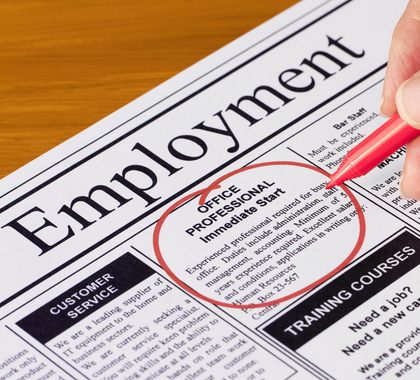In a significant victory for organized labor and a blow to the sharing economy, California has become the first state to enact legislation reclassifying certain contract workers as employees.
California Gov. Gavin Newsom (D) signed into law Assembly Bill 5 (A.B. 5) on September 18. Companies whose contract workers will be reclassified as employees will be subject to payroll taxes, minimum wage laws, workers’ compensation claims, and unemployment insurance. Those employees will have the right to organize unions and collectively bargain. A.B. 5 was sponsored by Assemblywoman Lorena Gonzales (D), a prominent union advocate.
Big Effects Expected
Analysts estimate the law could add an extra 15 percent to 20 percent to the affected companies’ operating expenses.
A.B. 5 is expected to affect up to one million contract workers statewide and upend the business models of ridesharing platforms such as Uber and Lyft. The new law, which will take effect on January 1, 2020, could extend to other contract workers such as interpreters and translators, who provide their services in hospitals, courtrooms, and technical laboratories, and freelance writers.
Also affected are trucking firms that rely heavily on independent truckers who own or lease their equipment to supplement their operations. The California Trucking Association tried unsuccessfully to carve out an exemption from the bill. Some groups were exempted, including doctors, lawyers, and insurance brokers. Newspaper publishers got a one-year delay, after which newspaper carriers will be reclassified as employees.
Musicians are also caught up in the new law.
“This could have a big impact on the California recording industry,” said Richard Burgess, who heads the American Association of Independent Music, the Los Angeles Times reported on September 22.
Strict ‘ABC Test’
The new law lays out strict criteria, known as the ABC test, for classification as a contract worker. To avoid having to treat a worker as an employee, a company must be able to prove (A) the worker is independent and free to perform the services provided without company control, (B) the work is “outside the usual course of hiring entity’s business,” and (C) the worker is established in a trade similar to the work being performed.
Many questions remain, including the status of business-to-business contracting relationships, common in franchise businesses such as fast-food restaurants.
“The lack of clear language in AB 5 carving out the franchise business model is likely to be exploited by the California plaintiffs’ bar,” stated the law firm Greenberg Trauig, LLP in The National Law Review on September 24. “In addition, whether a California-based franchisee is actually an employee of the franchisor under the ABC test as codified in AB 5 will undoubtedly become a hotly litigated issue.”
Confusion over exactly who will be covered under the new law, together with concerns over its impact on the business community, have prompted Newsom to say he will seek changes to the statute.
Intense Fight Expected
The new law is aimed directly at ridesharing services, says Stanley Greer, a senior research associate at the National Institute for Labor Relations Research.
“The clear aim of A.B. 5 is to pave the way for Big Labor to gain monopoly-bargaining and forced-union-dues-privileges over Uber and Lyft drivers and an array of other independent contractors (ICs),” Greer said. “But at this time, it appears that many of the targeted ICs and Uber and Lyft plan to fight back intensely rather than knuckle under. It’s still possible this scheme won’t play out the way union-label politicians in California intended.”
Uber, Lyft, and delivery service company DoorDash are contributing $30 million each to support establishing a November 2020 referendum or ballot initiative to overturn the law. A referendum would either uphold or repeal the law, and a ballot initiative would replace A.B. 5 with a new law. If A.B. 5 opponents opt for a referendum, the law would be stayed until voters decide the matter.
“Because we continue to believe that drivers are properly classified as independent, … drivers will not be automatically reclassified as employees, even after January of next year,” Uber legal officer Tony West said in a statement released on September 11.
California labor organizers are moving ahead to recruit newly designated employees into union membership, The Hill reported September 24.
More to Come?
A.B. 5 could spark similar legislation in politically like-minded states, says Wayne Winegarden, a senior fellow for economics and business at the Pacific Research Institute.
“A.B. 5 diminishes economic freedom, reduces job growth, and raises costs on consumers,” Winegarden said. “Like many of California’s ill-conceived policies, A.B. 5 also sets an example that, should other states follow, will amplify the costs throughout the country.”
Bonner R. Cohen, Ph.D. ([email protected]) is a senior fellow at the National Center for Public Policy Research.





